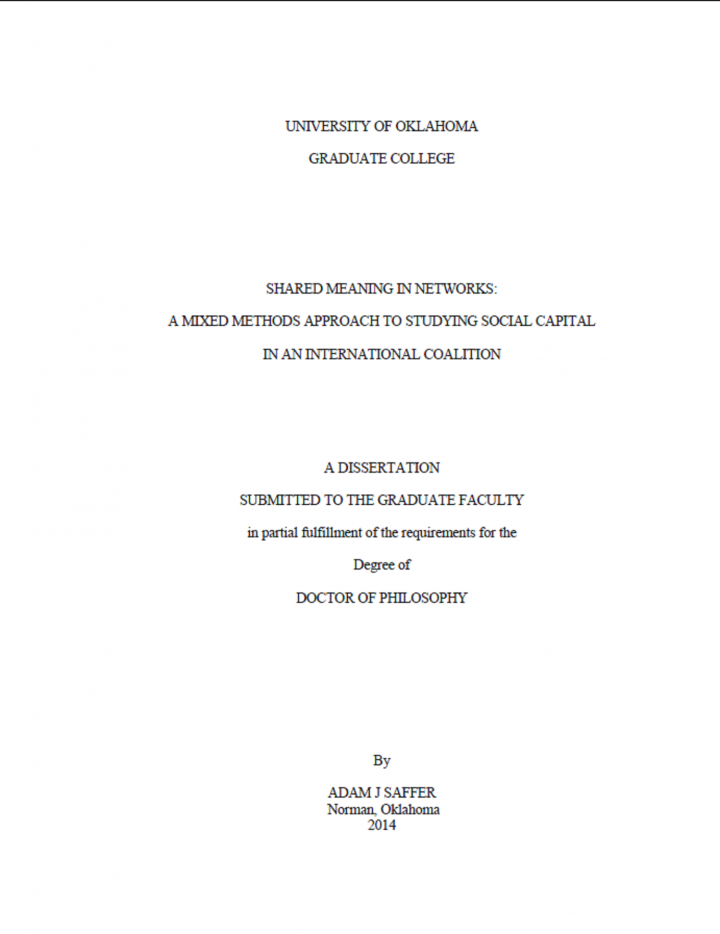Shared meaning in networks - A mixed methods approach to studying social capital in an international coalition
Saffer, A. J. (2014)

Published in: 2014
Pages: 254
Publisher:
PhD thesis, Gaylord College of Journalism and Mass Communication, University of Oklahoma, USA
Author:
Saffer, A. J.
Uploaded by:
SuSanA Admin
Partner profile:
common upload
3385 Views
8 Downloads
Public relations as a communication practice contributes to a full functioning society by bringing organizations, groups and individuals together to discuss issues. Public relations also helps to build advocacy coalitions. Rhetoric enables the creation and sustainment of coalitions and helps coalition members achieve a shared understanding of the events and issues they seek to address. Social capital emerges from the communicative relationships within a coalition’s network. Public relations plays a vital role in advocating and maximizing the efforts of individuals and organizations in advocacy coalitions.
This study began with the intent to address three conceptual gaps in the public relations and network literature. First was the need for empirical evidence supporting or refuting claims that shared meaning and social capital are related. Shared meaning has been depicted as an outcome of organizations, groups, and individuals communicating their interpretations of events and issues. Social capital has been portrayed as an outcome of complex networks of relationships among organizations, groups and individuals. Second, this dissertation explored previous researchers’ claims that organizations’ network positions give them influence in an advocacy coalition. The literature suggests that organizations should position themselves at structural holes to broker information and resources. Third, this study expanded the context of social capital research to examine an international coalition that relies on mediated communication. Prior research has suggested that mediated communication can reduce social capital thus potentially diminishing the social capital in a virtual advocacy coalition.
Bibliographic information
Saffer, A. J. (2014). Shared meaning in networks - A mixed methods approach to studying social capital in an international coalition. PhD thesis, Gaylord College of Journalism and Mass Communication, University of Oklahoma, USA
Filter tags
English














